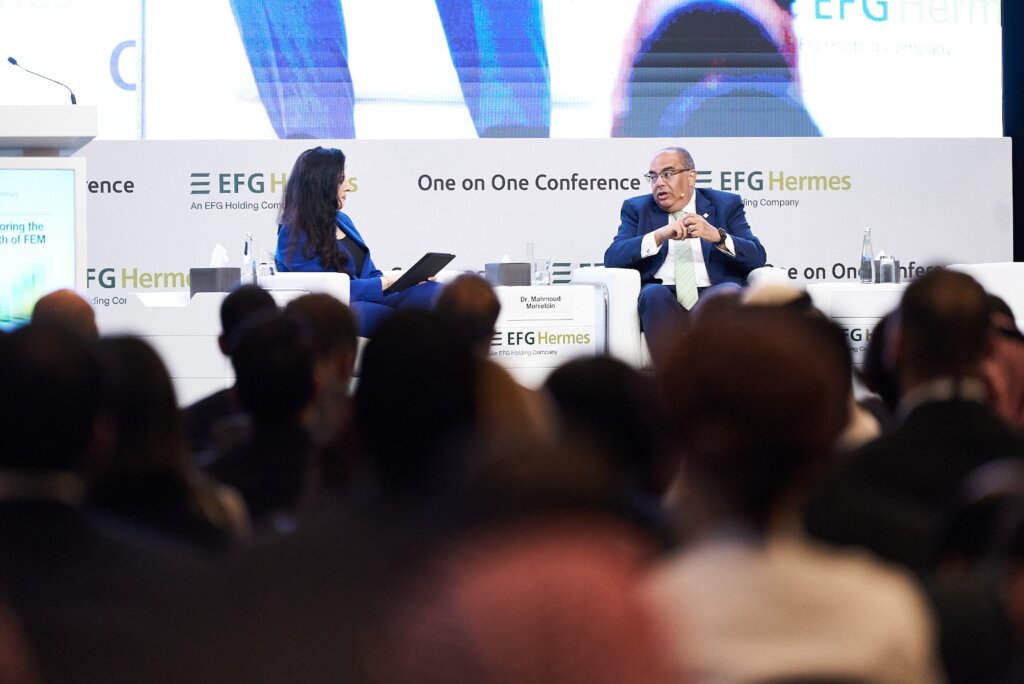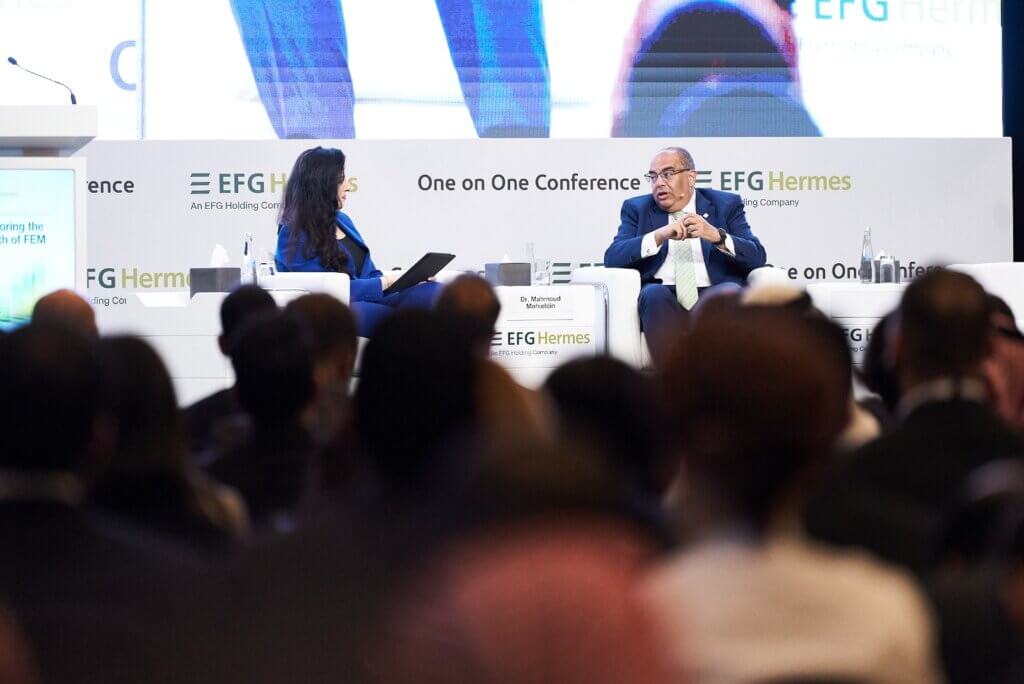
Dr. Mohieldin participated in the EFG Hermes annual one-on-one conference, where he conducted a fireside chat with Forbes Middle East senior presenter Sally Mousa.
“A few days ago, in preparation for the G20 meetings in Brazil, growth projections remained unchanged for the first time in three quarters”, Dr. Mohieldin stated. “However, it’s uncertain whether we should celebrate this soft landing or mention that growth at 3.1 percent globally is one of the lowest indicators. The U.S. economy is faring well, it’s progressing. The U.S. is one of the first to be hit and the first to recover. Market dynamism, largely, and better coordination between monetary and fiscal policy contribute to this resilience.” He added, “In contrast, Europe, particularly in the Eurozone, struggles to achieve even 1 percent growth this year.”
Mohieldin further stated that China faces similar challenges akin to Japan in the 1980s and 1990’s, both big Asian economies, notably aging demographics constraints in the labor market and potential bubbles, particularly asset and real estate. “China aims to transition its growth model from manufacturing to services, a shift requiring talents, skills, and patience. Drawing lessons from Japan’s experience in the late 1980s and 1990s is crucial.”
He noted, “The constraints we face are undeniably global. It’s disheartening to note the existence of over 3,000 trade restrictions. China, once heavily reliant on a globalized economy, finds itself in a different landscape today. It’s an uphill struggle, not just for China but for other emerging markets as well. We witness the typical tensions between rising powers and established ones. According to economist Paul Krugman, regarding the comparison between China and Japan, China’s trajectory may even be worse than Japan’s decline. Moreover, we cannot overlook the burgeoning force of India. The economic center of gravity is unmistakably shifting towards the East.”
“While we may not be seeing another global financial crisis, we will be seeing a development crisis and scattered fires in different places. The Global Sovereign Debt roundtable, established at the G20, hasn’t proven effective. There’s minimal support from the global financial system for the developing world.”
Moreover, Mohieldin said, “Many nations in Africa and South Asia allocate more funds to debt servicing than to essential sectors like education and healthcare. Access to finance remains a significant challenge. The cost of borrowing is still high. Foreign Direct Investment isn’t flowing as expected. Domestic savings aren’t enough for fueling your needs for investment and growth. Furthermore, global debt markets haven’t sufficiently recovered to provide developing markets with the necessary finance to meet their development goals.




